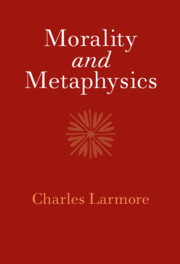Book contents
- Morality and Metaphysics
- Morality and Metaphysics
- Copyright page
- Contents
- Acknowledgments
- Introduction
- Part I The Structure and Scope of the Moral Point of View
- Part II Self and World
- Chapter 5 Kant and the Meanings of Autonomy
- Chapter 6 Moral Philosophy and Metaphysical Evasion
- Chapter 7 The Conditions of Human Freedom
- Chapter 8 Self-Knowledge and Commitment
- Index
Chapter 5 - Kant and the Meanings of Autonomy
from Part II - Self and World
Published online by Cambridge University Press: 09 June 2021
- Morality and Metaphysics
- Morality and Metaphysics
- Copyright page
- Contents
- Acknowledgments
- Introduction
- Part I The Structure and Scope of the Moral Point of View
- Part II Self and World
- Chapter 5 Kant and the Meanings of Autonomy
- Chapter 6 Moral Philosophy and Metaphysical Evasion
- Chapter 7 The Conditions of Human Freedom
- Chapter 8 Self-Knowledge and Commitment
- Index
Summary
The notion of autonomy has come to mean many different things – self-legislation, thinking for oneself, self-governance. But it was Kant who introduced the term into philosophy, and he meant by it the idea that we ourselves, as rational beings, are the authors of the principles by which we think and act. This chapter argues that such an idea is incoherent. Reason is essentially a receptive faculty, consisting in our capacity for responding to reasons. This chapter also explores why Kant, and many others after him, were led to this idea, namely their adherence to a naturalistic conception of the world of experience. It therefore goes on to sketch a better metaphysical conception of reality
- Type
- Chapter
- Information
- Morality and Metaphysics , pp. 111 - 133Publisher: Cambridge University PressPrint publication year: 2021

